The Flowers in Her Room
The Flowers in Her Room
Me: Is it fine if I start recording our conversation now?
Esta: Sure, what do you want to talk about?
Me: I don’t know,
about
everything?
Esta: Things in here haven’t changed much with the virus. We have followed our routine. It is more difficult to have visitors but otherwise things have stayed the same.
I suppose, I miss going out, but I understand what’s happening;
I am old.
I am old
and at risk of the virus affecting me.
I need to have things done for me.
I could complain but I don’t.
I accept it.
I have no complaints.
I don’t need to go out; I can see everything from here.
She looked out the window and smiled.
The only problem I have is my memory; I am forgetting things.
I noticed that Esta had
many flowers in her room.
Esta: They bring me the paper, I read all of them. I always have. When I first got married, my husband let me read the paper every day. Then I realised later that he did it so I kept him updated with the news and so he could look like he was very knowledgeable around his friends. She laughed proudly.
I want to know what is happening in the world.
Me: Do you want to drink some water?
Esta: Don’t worry, I’ll drink it if I am thirsty.
She smiled at me.
I smiled back.
We both knew that I was trying to make her drink liquids.
When I watch the news, I try not be affected emotionally because there is not much I can do about it. I think we are getting worse instead of getting better at managing the world.
How can I put it?
We thought we would evolve to be more intelligent, but it hasn’t turn out that way. I don’t know whether men are worse, they seem to be. They look at things for their own benefit, much more than women.
You are welcome
to photograph my flowers.
Are you going to photograph them
against the light?
I think you shouldn’t.
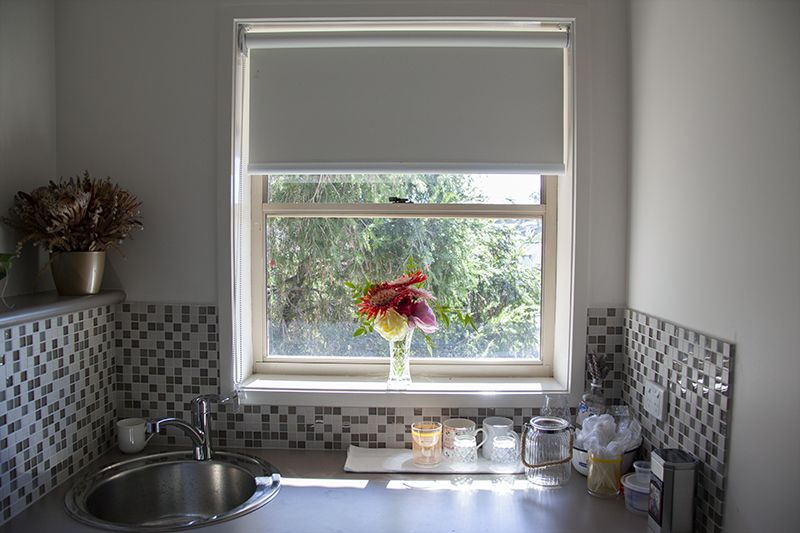
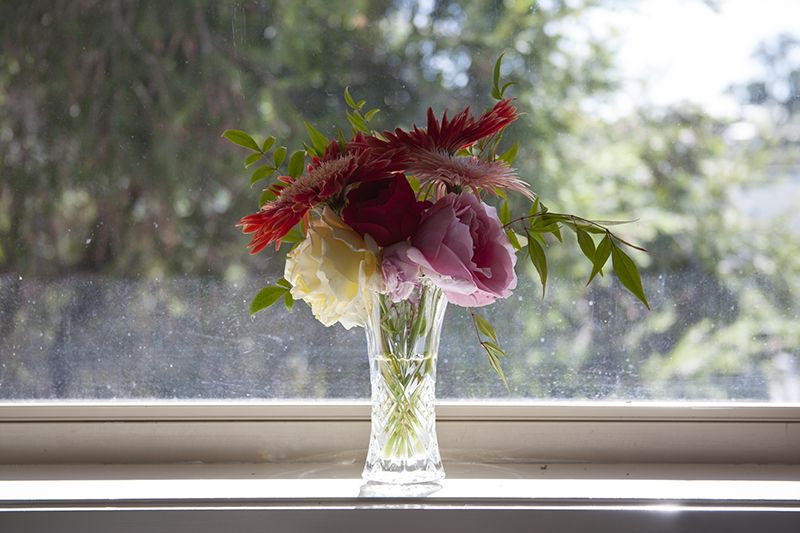
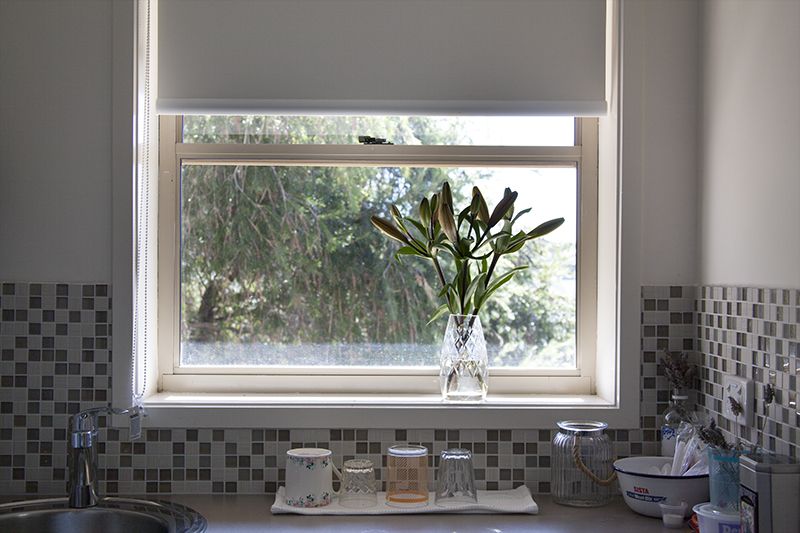
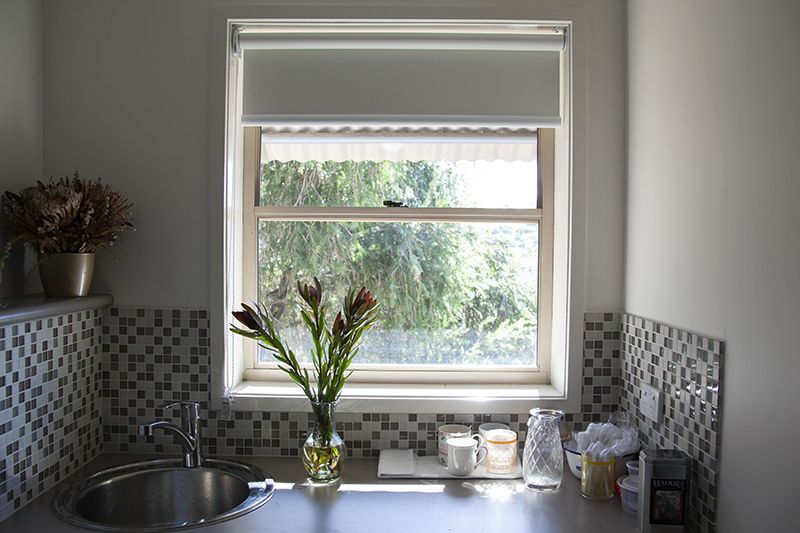
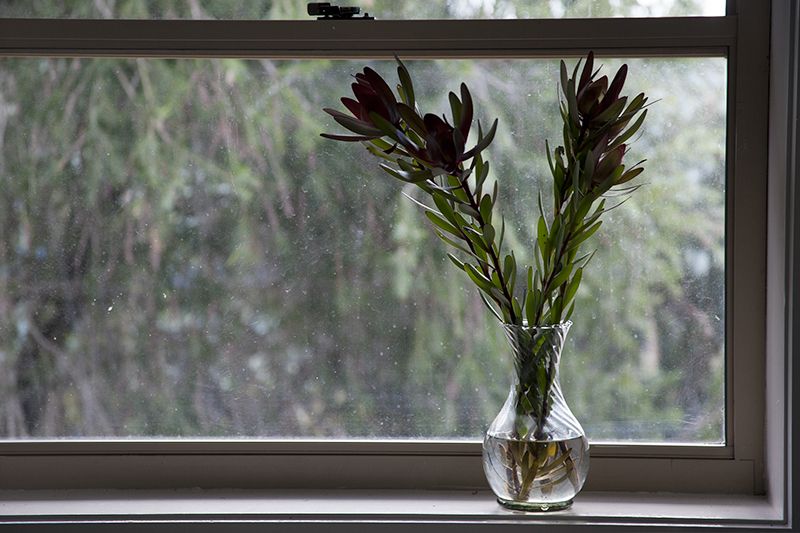
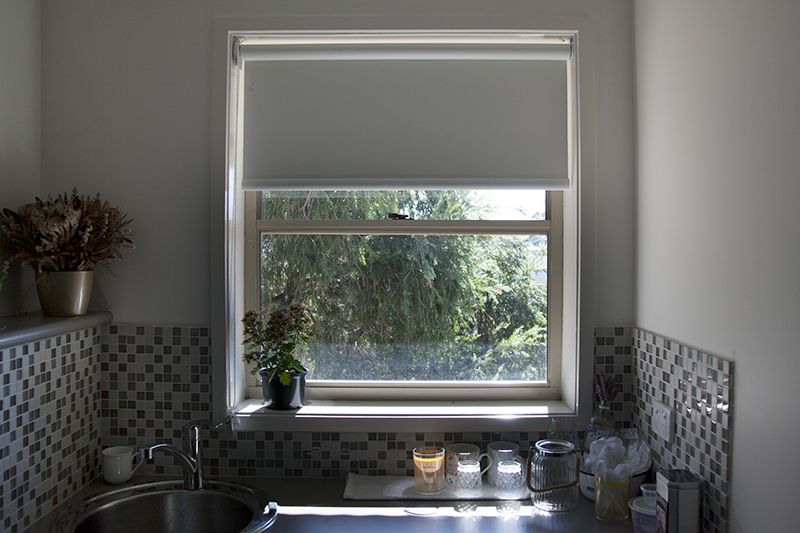
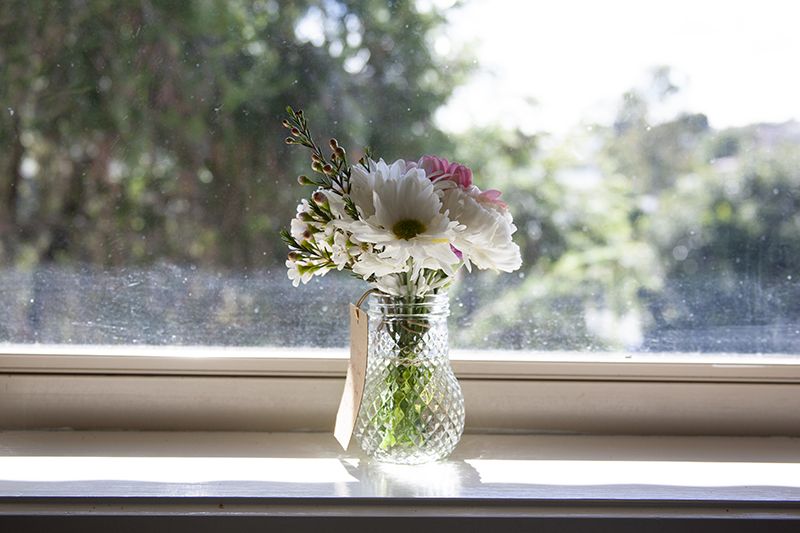
Whenever I visit Esta she is always sitting in an armchair with a couple of newspapers on her lap. She seems surprised every time I enter the room.
Me: Have you been following the news this week? Did you read about George Floyd and the protests in America?
Esta: Yes. There are people who think less of black people. I think it is ridiculous that some people think they are superior. They are not. We are all people.
When my Mother left Italy, people said to her that Aboriginals eat white babies, so imagine what she thought! We lived in the bush and our closest neighbours were Aboriginals. I played with the children and I never saw any difference.
We went back to Italy when I was nine and my Mother said to them: ‘Aboriginals are just like us; they love their children and look after them. The only difference is the colour of the skin which doesn’t matter. We are all the same.’
The elderly man from next door started to sing very loudly.
We both laughed quietly.
I closed the door.
Esta: I like my room.
She looked around her room.
It has a good floorplan, two windows on the side. It works.
There is not much happening during the day here and I am not expecting anything wonderful. Food is good.
She looked at her side table and pointed to a plate with canned fruit and a cup of green tea.
They wake me up at eight and bring me breakfast here. They say I am a slow eater; well, I only have one tooth at the bottom, they forget!
She laughed.
Me: Do you want to drink your tea now?
Esta: Sure.
It started to rain while Esta
was drinking her tea.
Before I left that day, we talked (off the record) about how much we both like the smell of rain; Esta said it reminded her of the bush.
Esta: I had very little schooling when I was a kid. I didn’t read books—
how could I?
I had no access to them because we lived in the bush, but I had the job of unpacking the groceries once a week and the eggs came packed covered with newspaper.
I used to unwrap the eggs every week.
She mimicked the action with her hands.
I used to keep all the papers. Sometimes, I could put the pieces together.
Me: I imagine it to be like some kind of puzzle.
Esta: That was my one big source of finding reading matter.
I was different to other kids because I knew things.
I find it hard to understand where the satisfaction is in technology. I can’t get my head around the electronic books. That is so beyond me. I am not sure how that affects people. I think you get a better understanding of things in the old way. I can’t think of a better invention than the book.
Me: It is almost lunch time; I’ll walk you to the dining area.
Esta: Thanks for coming, Ana.
Me: My pleasure, I’ll see you next week.
We waved and smiled at each other.
Esta found her table in the common area. They were having fish and chips that day.
I listened to Nick Cave on my way back home.
Esta: My parents learnt English here. Their use of language was very different between them; my father learnt how to communicate at his job and my mother understood people’s feelings. She spoke better English than him.
We came from Northern Italy; everybody there spoke different languages and dialect. We used to speak the mother tongue:
Slav.
I don’t think I have ever seen anything written in that language; I learnt just from listening. I still remember it, but I don’t have anyone to speak it with. I have no more interaction with people from my village. They are all gone.
I think to myself: how many languages have been lost? And that’s the strange thing about language: how does a new language start?
Me: I wonder what other things get lost when a language is gone.
Esta: I don’t know—stories and traditions?
Me: Yes, and recipes and songs?
Esta: They used to grow corn in my village and take it down to the mill to grind. They made polenta from it. That was all they ate. There was no bread. Bread was something special because you needed money to buy it.
Bread was special.
I noticed a sense of irony in her tone and I remembered that just recently I had paid more than twenty dollars for a plate of polenta in a coffee shop.
That day, while I photographed the flowers in her room, Esta sang a song for me:
‘It’s three o'clock in the morning. We've danced the whole night through.’
She said she couldn’t remember the name of the artist, but that she could still hear her mother’s voice singing that line.
In my next visit, I played John McCormack’s version of that song on Spotify for her.
She looked happy.
Esta: I wonder, are we improving and learning how to be better people? How to get along?
I think about it sometimes, but I do not have a good conclusion. I hope that something good will come.
Eventually,
we will learn to care about each other more. I hope. I really hope that.
She looked at me as if she was waiting for an answer. So, I replied.
Me: I hope that, too.
Esta: I think the hope is with the women because to do good we need the strength but also the feelings and emotions.
Sometimes
I just think too much.
We remained silent
for a while.
That morning, we read together the story about the Uceli Quartet performing a song for an audience of 2,292 potted plants to mark the reopening of the Opera House in Barcelona after Covid-19 lockdown. I thought it was a very beautiful gesture. Esta disagreed; she thought it was meaningless.
Me: It is sunny out there; shall we go down for a walk?
Esta: It is almost lunch time.
She looked at the clock.
It was 11:30.
We smiled at each other because we knew that she didn’t really feel like walking.
Esta: I guess I should do a bit of walking.
Me: Let’s go.
We said goodbye to each other in the corridor.
I drove back home thinking about my own grandmother and how much I have forgotten my conversations with her.
Esta: I never thought
I was going to live this far.
How much longer?
I keep asking myself.
I know that some people go silly with religion, they believe too much. My mother sent me to a Catholic school so I could be exposed to religion. The nuns were very ‘handy’ with the cane and I thought ‘that is no way to introduce someone to religion’.
I knew a lot of what they told me couldn’t be right. I didn’t feel I needed to follow religion strictly.
I questioned everything.
Me: I think that believing that there is something bigger beyond us ‘helps us’ to find meaning in the everyday.
Esta: Yes, I guess so.
I don’t know what happens when we die. I haven’t found a satisfactory answer that I could pass on. We feel like we need some sort of ceremony to finish off but I don’t really think about it too much.
I don’t have any specific idea for my own funeral; it depends on what my family wants to do. I hope something that doesn’t cost much.
She laughed.
I had a cake
for my ninety-fifth birthday.
I always have something special.
That day, Esta was asleep when I came into her room. I arranged the flowers and watered her plants.
Esta: I read something about the virus today.
Esta looked through the newspapers on her lap but couldn’t find the story she was looking for.
I can’t remember what it said. It is scary not to know exactly what’s happening. I don’t think we can get rid of the virus;
we just need to stop.
The world has changed.
Are you taking more photos of my flowers?
Me: Yes, some of them look different from last week.
Esta: They are dry, that is why.
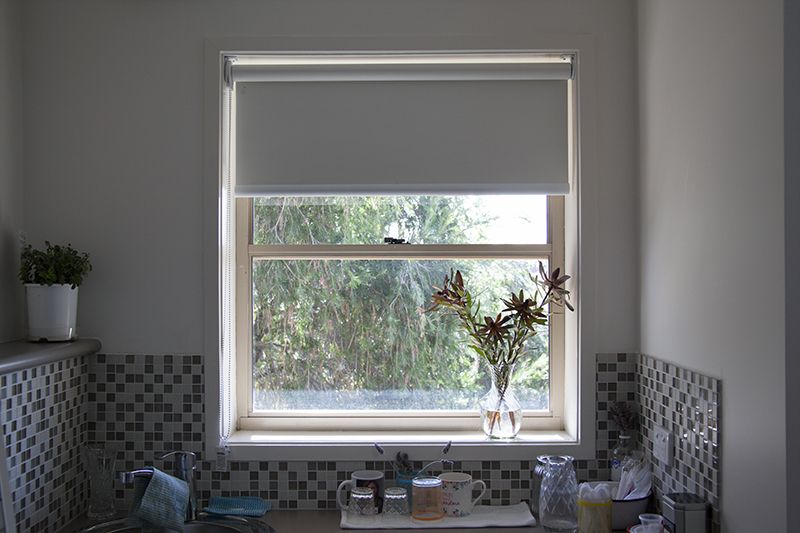
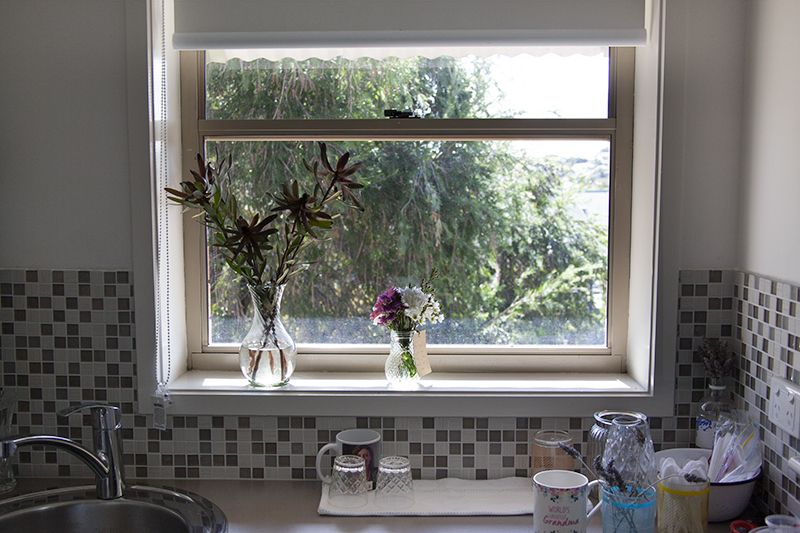
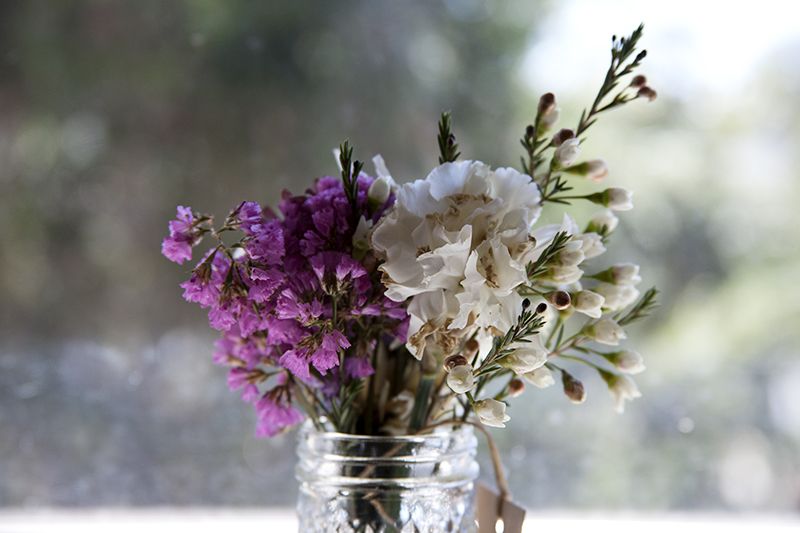
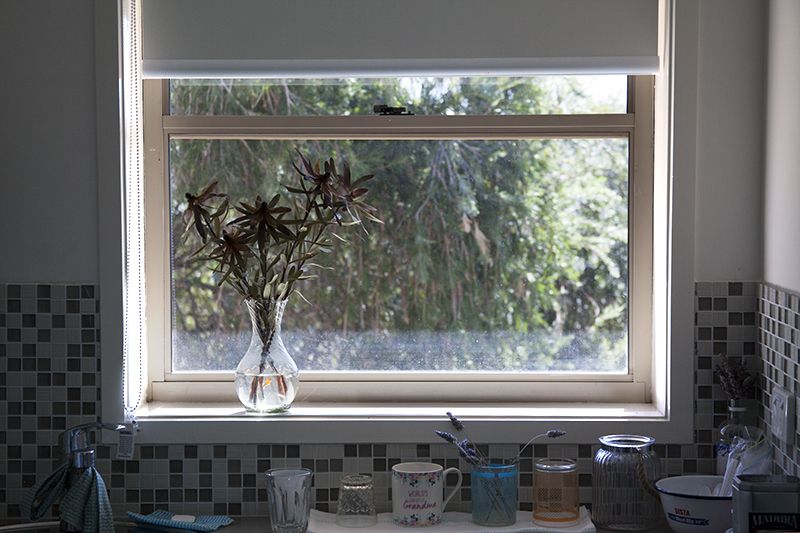
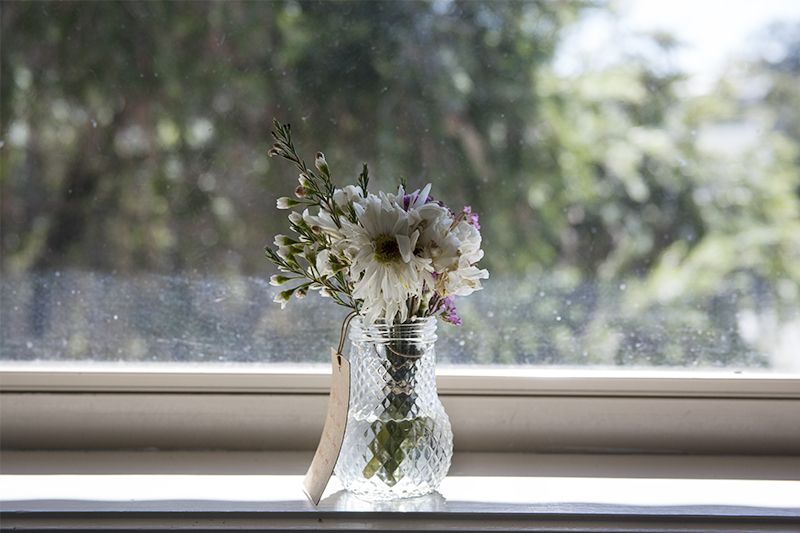
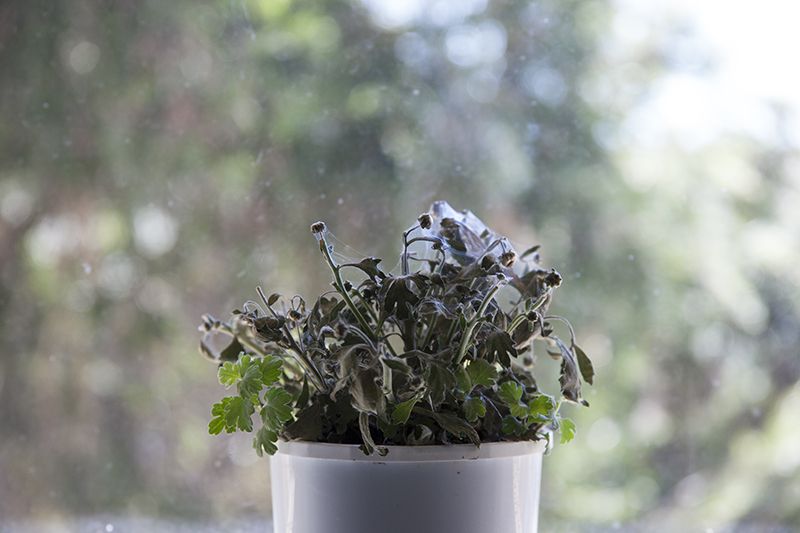
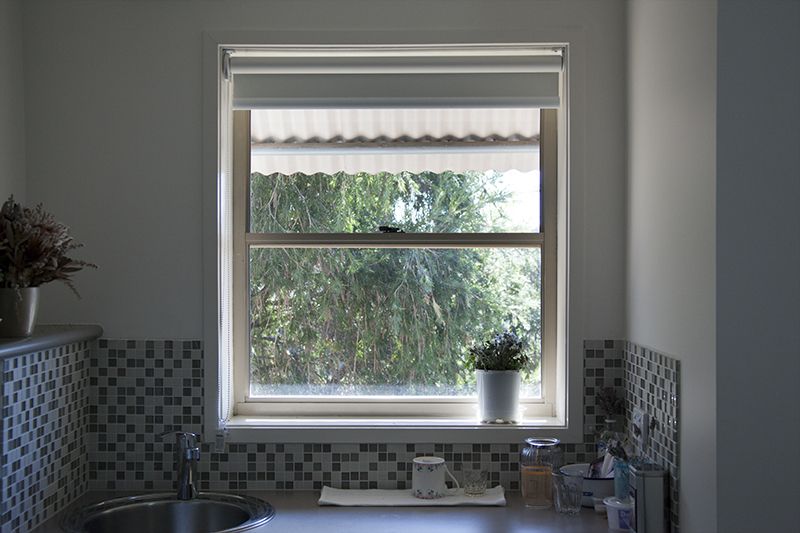
I don’t have any favourite flower,
even the weeds
have flowers.
I like seeing that something makes a flower and tries to survive.
It is special.
Is this thing still recording?
She pointed at my tiny recorder that was placed next to her.
Me: Yes, it is. I’ll stop it now. Shall we go out for a walk?
There is still time.